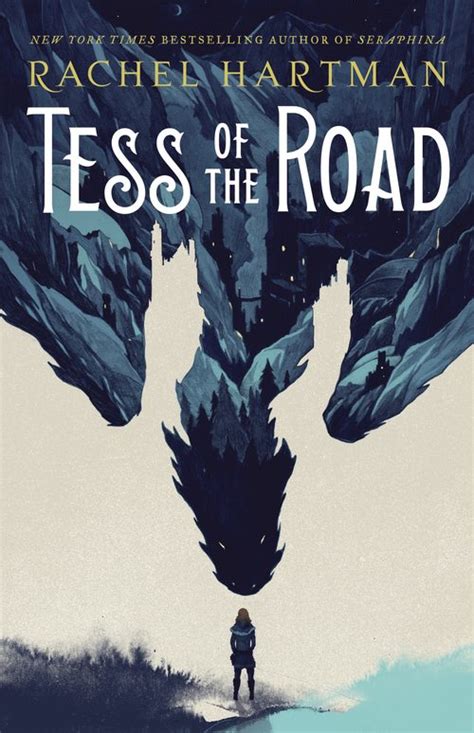Review: Tess of the Road hits close to perfect
Rachel Hartman’s new YA fantasy novel is a deeply compassionate story about self-acceptance
March 22, 2018
Tess of the Road promises many things– adventure, dragons, and more from Rachel Hartman, the author of the critically-acclaimed, bestselling Seraphina duology. It delivers on all of these, but not necessarily in the way that readers would expect it to. Tess of the Road is completely different from any young-adult fantasy novel that I have ever read. It is a worthy follow-up to the Seraphina duology, but it is also a worthy story its own respect– a tale of healing, hope, and redemption.
Tess of the Road returns to the setting of Hartman’s previous books, the fantastical kingdom of Goredd, but this time from an entirely new perspective. 17-year-old Tess Dombegh can’t seem to behave properly no matter how hard she tries. In a kingdom where women and men are relegated to strict gender-based roles, headstrong, rebellious Tess breaks all the rules. Until one day Tess goes too far, and, rather than accept her family’s plans to send her to a nunnery, decides to run away from it all. Taking to the road disguised as a boy and with a strange creature known as a quigtl in tow, Tess sets out on a journey to escape her past and ends up finding her future.
Tess of the Road is a similar book to Seraphina in that both revolve around a young woman’s journey from self-loathing to acceptance as she gradually rejects her society’s attempts to marginalize and vilify her. However, whereas Seraphina’s story was inextricably linked to the large scale political machinations of rulers and nations, Tess’ story is far more personal. There are few, if any, clear-cut heroes or villains to be found in the book, and its plot unspools at a slow, almost imperceptible pace.
Tess of the Road is, at its core, a questing story, but unlike most epic fantasy quests, which have clear end-goals or objectives, Tess is more concerned with the quest itself than what its outcomes may be. Tess’ journey is just as metaphorical as it is literal- her movement along the road parallels her movement towards a greater understanding and acceptance of herself, others, and the world around her. Hartman’s focus is narrowed to just Tess’ quest, and yet it still manages to touch on a variety of issues relevant to the real world– including gender identity, rape culture, and sexuality– with nuance and depth.
Tess’s painful history, which Hartman gradually reveals to readers bit-by-bit throughout the novel, contains plenty of heavy subject matter, and the portrait Hartman paints of Tess as a bitter, wounded young woman is heartbreaking. However, Tess of the Road is ultimately a deeply compassionate, uplifting book about overcoming the self-hatred and pain that outsiders are societally conditioned to feel. And, of course, learning to love oneself. When I finished the book, it left me feeling hopeful and empowered.
That’s not to say that Tess of the Road is perfect. The girl-disguises-herself-as-a-boy is an overused trope in fantasy novels that is rarely portrayed with any realism or depth, and, unfortunately, Tess of the Road is no exception. I was hoping that Hartman would do something unique with Tess’ decision to disguise herself, instead, it often feels like an afterthought and is usually just played for humor.
And a romantic subplot shoehorned into the book’s final act feels contrived and more like Hartman’s attempt to prove a point than a legitimate relationship. (But maybe I am judging too harshly, after all, no couple will ever be able to top Seraphina and Lucian from Seraphina.)
But these gripes are miniscule when weighed with Tess’ overall strength, coherence, and emotional impact as a novel. This book may not be perfect, but it really is close to it.
Fans of Seraphina looking to return to Goredd from a slightly different perspective (while still seeing a few familiar faces) should definitely read Tess of the Road, and they probably will. My true hope is that people who are not fans of Seraphina will pick up this book, that readers who don’t typically read fantasy or young-adult fiction will be willing to try something outside of their comfort zone. Because Tess of the Road is a powerful story that could not be more relevant or helpful. It is a story that deserves to be read and shared.






















